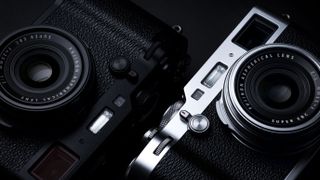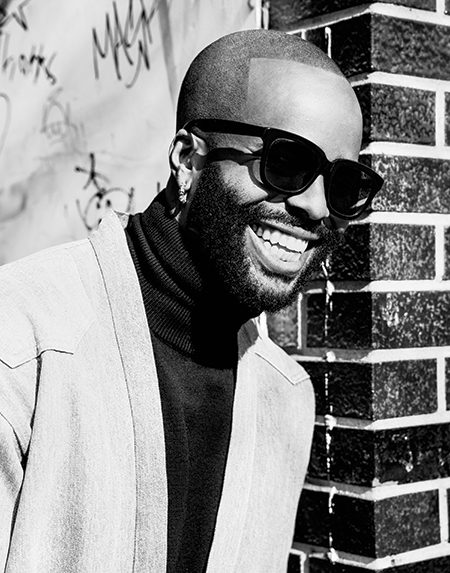Best compact camera 2018: 10 top models to suit all abilities

Compact cameras and the compact camera market have changed a lot over the last few years. Smartphones have decimated the entry-level range of point-and-shoot models that used to be popular and as a result manufacturers have concentrated on putting more advanced features into cameras to make them more attractive than ever before.
In addition to a move towards having physically larger sensors to boost image quality that can rival DSLRs and mirrorless cameras in some cases, some compact cameras sport lenses with long zoom ranges or wide maximum apertures, allowing for much more flexibility when shooting a range of subjects. Wi-Fi connectivity is also now de rigueur on most compacts, so you can transfer shots quickly to a phone for sharing on Facebook etc, while most offer 4K video recording as standard.
Many enthusiast photographers used to be very sniffy about compact digital cameras, but there are now many that make a great alternative to a DSLR or mirrorless camera. And those who are new to photography and thinking about stepping up from a smartphone have some pretty sophisticated choices as well.
There are small cameras that can slip in a pocket yet have huge zoom ranges, and large bridge cameras that look like DSLRs, but have a fixed lens and lots of automated easy-to-use options.
These cameras prove that you don't have to buy a camera that takes interchangeable lenses to get great shots.
If you need a bit more help figuring out what kind of camera you need, then read this article: What camera should I buy?
Or if you already know what kind of camera you want, then check out our more specific compact camera guides:
Read our in-depth Panasonic Lumix ZS200 / Lumix TZ200 review
Read our in-depth Sony Cyber-shot RX10 IV review
Read our in-depth Canon PowerShot G9 X Mark II review
Read our in-depth Panasonic Lumix LX10 / LX15 review
Read our in-depth Sony Cyber-shot RX100 V review
Read our in-depth Panasonic Lumix FZ2000 / FZ2500 review
Read our in-depth Canon PowerShot G1 X Mark III
Read our in-depth Sony Cyber-shot WX220 review
Read our in-depth Leica Q review
Should you buy a mirrorless camera over a DSLR? Watch our guide video below to learn more!
In addition to a move towards having physically larger sensors to boost image quality that can rival DSLRs and mirrorless cameras in some cases, some compact cameras sport lenses with long zoom ranges or wide maximum apertures, allowing for much more flexibility when shooting a range of subjects. Wi-Fi connectivity is also now de rigueur on most compacts, so you can transfer shots quickly to a phone for sharing on Facebook etc, while most offer 4K video recording as standard.
Best compact cameras
There are small cameras that can slip in a pocket yet have huge zoom ranges, and large bridge cameras that look like DSLRs, but have a fixed lens and lots of automated easy-to-use options.
These cameras prove that you don't have to buy a camera that takes interchangeable lenses to get great shots.
If you need a bit more help figuring out what kind of camera you need, then read this article: What camera should I buy?
Or if you already know what kind of camera you want, then check out our more specific compact camera guides:
Otherwise, keep reading to find out which are the best compact cameras on the market right now, and why.
1. Fujifilm X100F
The X100F is the perfect compact for the enthusiast photographer
Sensor: APS-C CMOS, 24.3MP | Lens: 23mm f/2 | Monitor: 3.0-inch, 1,040,000 dots | Viewfinder: Hybrid optical/EVF | Continuous shooting: 8fps | Movies: 1080p | User level: Expert
Beautiful design
Hybrid viewfinder
1080p video
Fixed focal length lens
It may be one of the more expensive options here and it's not a compact for everyone, but if you're after a high-quality camera, you're not going to be disappointed with the fabulous X100F. Everything about it oozes class. Unlike a lot of compacts here, it has a fixed lens as opposed to a zoom, but this 35mm equivalent f/2.0 lens is paired with a DSLR-sized 24.3MP APS-C sensor that delivers cracking results. There's also the tactile external controls and clever hybrid viewfinder - you have the option of electronic and optical views make it a joy to shoot with. You'll need some photo knowledge to get the best from it, but the X100F is an exquisite camera that you'll cherish if you take the plunge.
Read our in-depth Fujifilm X100F review
2. Panasonic Lumix ZS200 / TZ200
The best travel zoom camera you can buy right now
Sensor: 1-inch type, 20.1MP | Lens: 25-360mm, f/3.3-6.4 | Monitor: 3.0-inch touchscreen, 1,240,000 dots | Viewfinder: EVF | Continuous shooting: 10fps | Movies: 4K | User level: Beginner/Intermediate
Large 1.0-inch sensor
15x zoom range lens
Small electronic viewfinder
Fixed screen
Panasonic invented the travel-zoom camera genre - compact cameras that you can fit in a pocket but that have long zoom lenses built-in. Despite strong competition, the ZS range (known as TZ outside the US) has continued to dominate sales, and it looks set to continue this with the brilliant Lumix ZS200 (called TZ200 outside the US). As we first saw with the Lumix ZS100 / TZ100, Panasonic has been able to keep the camera body about the same size as earlier ZS-series cameras but squeeze a much larger 1-inch sensor into the camera to deliver much better image quality. The zoom lens isn't quite so extensive as some, but the versatile 15x zoom should be more than enough for most users, while you also get (an admittedly small) electronic viewfinder, 4K video and a great touchscreen interface. If you're looking for a neat all-in-one compact camera that delivers great images, this is it. Read our in-depth Panasonic Lumix ZS200 / Lumix TZ200 review
3. Sony Cyber-shot RX10 IV
Expensive, but highly capable and offering a huge focal range
Sensor: 1-inch CMOS, 20.2MP | Lens: 24-600mm, f/2.4-4 | Monitor: 3.0-inch tilt-angle touchscreen, 1.44m dots | Viewfinder: EVF | Continuous shooting: 24fps | Movies: 4K | User level: Intermediate/Expert
Superb sensor
High quality zoom lens
Expensive
Menu system could be better
If you're looking for a powerful all-in-one bridge camera, then the RX10 IV from Sony is the best there is. You'll pay a premium for that performance, but when you look at what else is out there for the same price, the RX10 IV is virtually in a league of its own. Featuring a huge 24-600mm f/2.4-4 zoom lens, the RX10 IV builds on the RX10 III with an overhauled AF system that now does justice to the rest of the camera, while the 1-inch, 20.1MP sensor is capable of achieving excellent levels of detail. Handling is very polished, feeling like a DSLR in the hand and complemented by a large and bright electronic viewfinder. That's not forgetting the ability to capture video in 4K and shoot at up to 24fps. Impressive stuff.Read our in-depth Sony Cyber-shot RX10 IV review
4. Canon PowerShot G9 X Mark II
A pocket powerhouse of a compact camera
Sensor: 1-inch, 20.1MP | Lens: 28-84mm, f/2-4.9 | Monitor: 3.0-inch touchscreen, 1,040,000 dots | Viewfinder: No | Continuous shooting: 8.2fps | Movie: 1080p | User level: Beginner/Intermediate
Compact size
Simple to use
Limited zoom range
No 4K video
While there's now a decent selection of premium 1.0-inch sensor compact cameras to choose from, the Canon PowerShot G9 X Mark II sets itself apart thanks to its dinky proportions and streamlined controls. The highly pocketable dimensions do mean there are sacrifices to be made, with the PowerShot G9 X Mark II featuring a relatively short focal length zoom lens. However, if you're looking for a neat compact camera that can produce vastly superior images to your smartphone, and has decent connectivity options and simple-to-use controls, the PowerShot G9 X Mark II is an excellent choice. Read our in-depth Canon PowerShot G9 X Mark II review
5. Panasonic Lumix LX10 / LX15
With some stiff competition, this is our pick of the 1-inch compacts
Sensor: 1-inch type, 20.1MP | Lens: 24-72mm, f/1.4-2.8 | Monitor: 3.0-inch touchscreen, 1,040,000 dots | Viewfinder: No | Continuous shooting: 6fps | Movies: 4K | User level: Beginner/intermediate
Ultra-fast f/1.4 lens
Fast AF system
No viewfinder
Lack of proper grip
Panasonic's muscled it's way into the growing premium 1-inch compact sector with the brilliant Lumix LX10 (known as the LX15 outside the US), and is the perfect balance of performance, features and price. First, the bad news - there's no built-in EVF and the smooth finish doesn't offer the best handgrip, but the 24-72mm lens is one of the fastest around with a maximum aperture of f/1.4. Add to that some polished handling with dual control rings and a touchscreen, snappy AF and 4K video capture, and you have one of the best compact cameras around.Read our in-depth Panasonic Lumix LX10 / LX15 review
6. Sony Cyber-shot RX100 V
Sony's super-high speed sensor tech is brilliant but pricey
Sensor: 1-inch, 20.1MP | Lens: 24-70mm, f/1.8-2.8 | Monitor: 3.0-inch tilt-angle display, 1,228,800 dots | Viewfinder: EVF | Continuous shooting: 24fps | Movies: 4K | User level: Intermediate/expert
High-speed shooting and 4K
Built-in EVF
The tech makes it expensive
No touchscreen
Sony's original RX100 was a landmark camera that fused a 1-inch sensor in a compact, metal body with the controls and image quality demanded by enthusiasts. The RX100 V goes several steps further, though, with a 'stacked' sensor design for high-speed data capture. This means it can shoot 4K video, amazing 40x slow motion and still images at 24fps in continuous burst mode. That's not forgetting the neat little built-in electronic viewfinder that its rivals lack. It's a pricey option and does have its quirks, but if you're looking for a versatile, pocket-sized compact with a quality zoom lens, you won't be disappointed.Read our in-depth Sony Cyber-shot RX100 V review
7. Panasonic Lumix FZ2000 / FZ2500
The FZ2000 / FZ2500 combines a bridge camera zoom with a big 1-inch sensor
Sensor: 1-inch, 20.1MP | Lens: 24-480mm, f/2.8-4.5 | Monitor: 3.0-inch articulating display, 1,040,000 dots | Viewfinder: EVF | Continuous shooting: 12fps | Movies: 4K | User level: Intermediate
1-inch sensor
Super-fast AF
Comparatively large
No weather-sealing
This trend towards bigger sensors shows up in the Panasonic Lumix FZ2000 (known as the FZ2500 in the US). Bridge cameras are very popular because they offer a colossal zoom range at a modest cost. To design a big zoom, though, the makers have to use a tiny sensor – and here Panasonic took the wise choice to sacrifice zoom range for better quality. The Panasonic FZ2000 uses a 1-inch sensor, and while the zoom tops out at 480mm equivalent, which is relatively short for a bridge camera, that's still plenty for all but the most extreme everyday use. We love the FZ2000 because it delivers both image quality and zoom range - if you're looking for something a bit cheaper, the older FZ1000 is still available.Read our in-depth Panasonic Lumix FZ2000 / FZ2500 review
8. Canon PowerShot G1 X Mark III
A unique compact, thanks to an APS-C sensor and zoom lens
Sensor: APS-C CMOS, 24.2MP | Lens: 24-72mm, f/2.8-5.6 | Monitor: 3.0-inch vari-angle touchscreen, 1,040,000 dots | Viewfinder: EVF | Continuous shooting: 7fps | Movies: 1080p | User level: Intermediate/expert
Big sensor, small body
Refined touchscreen controls
Limited zoom range
Only 1080p video capture
Keen photographers usually go for a DSLR or mirrorless camera, but they also want something that will slip in a pocket for those days when the big camera needs to stay at home. Usually, that means putting up with a smaller sensor – but not this time. Somehow, Canon has shoehorned a DSLR-sized APS-C sensor into a compact camera body. There's also a built-in electronic viewfinder and refined touchscreen interface. The zoom range is a bit modest at 24-72mm, but there's nothing else quite like it.Read our in-depth Canon PowerShot G1 X Mark III
9. Sony Cyber-shot WX220
Cheap and cheerful 10x compact
Sensor: 1/2.3-inch CMOS, 18.2MP | Lens: 25-250mm, f/3.3-5.9 | Monitor: 2.7-inch display, 460,000 dots | Viewfinder: No | Continuous shooting: 1.5fps | Movies: 1080p | User level: Beginner
10x zoom lens
Compact design
Limited features
Small screen
If you're wanting a compact camera that can do a better job than your smartphone the WX220 ticks a lot of boxes, especially when you consider the extra flexibility offered by the 10x optical zoom, running from 25-250mm. Images are bright and punchy, with decent detail – ideal for sharing online or printing at typical sizes – while it's nice to see Wi-Fi connectivity included as well. The 2.7-inch screen is a little on the small side, but that does help to keep the dimensions of the camera to a pocket-friendly size. The WX220 may not have lots of bells and whistles, but what it does do, it does well.Read our in-depth Sony Cyber-shot WX220 review
10. Leica Q
It's incredibly expensive but the Q is the best compact camera around
Sensor: Full-frame, 24.2MP | Lens: 28mm f/1.7 | Monitor: 3.0-inch touchscreen, 1,040,000 dots | Viewfinder: EVF | Continuous shooting: 10fps | Movies: 1080p | User level: Expert
Full-frame sensor
Fabulous fast lens
Stomach-cramping price
Front grip is an optional extra
When photography was film-based most compact cameras took 35mm rolls, the same as a professional-level SLR. This meant that provided your camera had a decent lens you could get brilliant results. Digital photography changed that and many compact cameras have much smaller sensors which makes achieving high quality images more of a challenge. Leica and Sony are the only companies that make a compact camera with a full-frame sensor and while Sony's RX1 models are great, the Leica Q (Typ 116) has won our hearts. The biggest downside to the Q is its price, there's no getting around that. But for that huge stack of cash you get a Leica Summilux 28mm f/1.7 ASPH lens, a superb electronic viewfinder with 3,680,000 dots, a 3-inch 1,040,000-dot touchscreen, snappy autofocusing, traditional exposure controls and the ability to create stunning images. Despite the price, Leica can't make enough Q's to keep up with demand.Read our in-depth Leica Q review
Should you buy a mirrorless camera over a DSLR? Watch our guide video below to learn more!






11 Comments